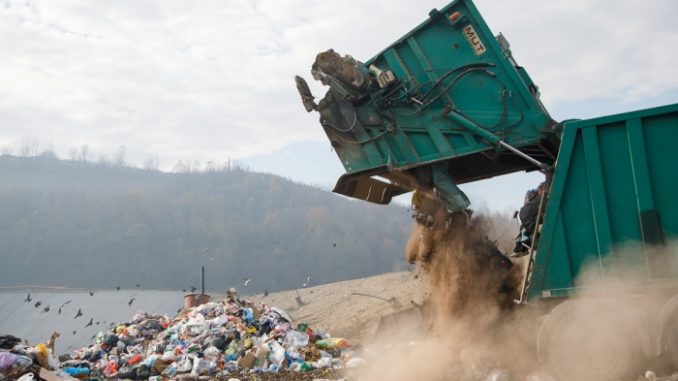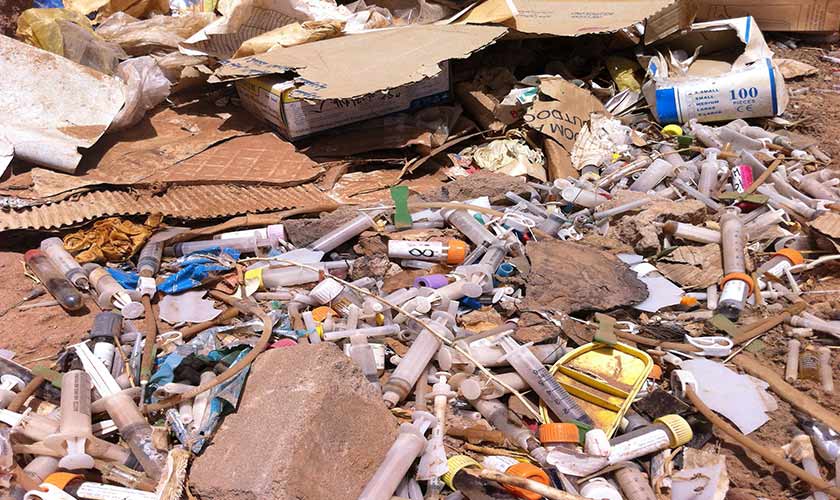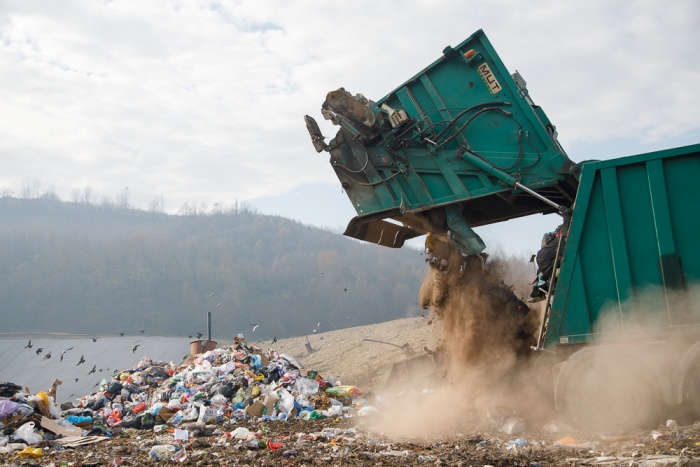
 Medical waste is very bad for the environment. As a result of the Covid-19 outbreak in the last two years, worldwide demand for Personal Protective Equipment (PPE) like gloves, masks, and gowns grew. This caused medical waste disposal rates to go through the roof. We look at how PPE affects the world around us.
Medical waste is very bad for the environment. As a result of the Covid-19 outbreak in the last two years, worldwide demand for Personal Protective Equipment (PPE) like gloves, masks, and gowns grew. This caused medical waste disposal rates to go through the roof. We look at how PPE affects the world around us.
Table of Contents
What are medical wastes?
Any trash that came from a hospital or lab can be called “medical waste.” This includes hospitals, labs, mortuaries, places where people and animals are tested and researched, blood banks, nursing homes, and places where blood is stored.
The World Health Organization (WHO) says there are 8 different kinds of medical waste:
- Infectious waste, such as used diagnostic materials that were thrown away, waste from treating infected people and animals, and waste from autopsies.
- Pathological waste includes contaminated organs and tissues from both animals and people.
- Sharps waste includes syringes, needles, scalpels, and blades.
- Chemical waste, such as solvents and reagents used in labs, as well as heavy metals that leak out of broken thermometers and batteries, are all examples of this.
- Pharmaceutical waste includes drugs and vaccines that haven’t been used or have expired but are still contaminated.
- Cytotoxic waste, which includes things like cytotoxic drugs used to treat cancer that are also genotoxic.
- There are many kinds of radioactive waste, such as contaminated diagnostic and radiotherapeutic materials.
- Non-hazardous or general waste, such as other waste from a medical or laboratory source that is not contaminated.
What Happens to the Environment When Medical Waste Is Dumped?
The Covid-19 pandemic is not only a threat to public health, but also to the environment. About 8 million tonnes of plastic are thought to go into the ocean every year. A report from the World Health Organization says that the medical waste from the pandemic made the amount of plastic pollution in the oceans 10 times worse.
PPE stands for personal protective equipment. This type of medical waste includes things like used gloves, test kits, and syringes that were used to treat patients with highly contagious diseases like Covid19. It also includes most of the types of medical waste listed above that were used to find the virus, test for it, and treat it.

To help fight Covid-19 and protect workers at testing centres around the world, the global production of PPE like “moon suits” went through the roof. This made the plastic problem even worse.
PPE: Problems with getting rid of medical waste in developing countries
At the moment, many countries, especially developing countries, don’t have good systems for getting rid of medical waste.
India
India is one of the worst at managing medical waste because it has very bad systems for getting rid of personal protective equipment (PPE) and doesn’t do enough to educate people about it. It also has bad systems for sorting, labelling, and burning waste, which makes it one of the worst.
PPE is often thrown away in India, and it is sometimes even burned along with funeral pyres in crematoriums.
What do we need to stop pollution from PPEs?
COVID19 says that proper rules for getting rid of medical waste, especially personal protective equipment (PPE), need to be made at the international level. Such rules will definitely help countries all over the world come up with their own rules at the national level.
Still, international organisations can only do so much when it comes to setting up programmes and giving guidelines to help healthcare workers get rid of medical waste in the right way. So, all countries must take positive steps to make these rules part of their national laws.
Here are a few ideas:
- Ask first-world countries to help third-world countries set up infrastructure for getting rid of trash, such as sorting, segregating, and disposal facilities, by giving them money.
- Set up a policy with no exceptions and a tax for people who don’t handle PPE properly.
- Update the rules about medical waste and point out that it can be very infectious and spreadable, which is bad for the environment.
- Promote campaigns and programmes that show how PPE can hurt our ecosystems if it is not thrown away properly.
- Laws must go along with measures like programmes, guidelines, and financial help to raise awareness about how to properly dispose of infectious PPE and make sure people do it. If this doesn’t happen, it’s likely that these rules won’t be followed in the long run.

Leave a Reply